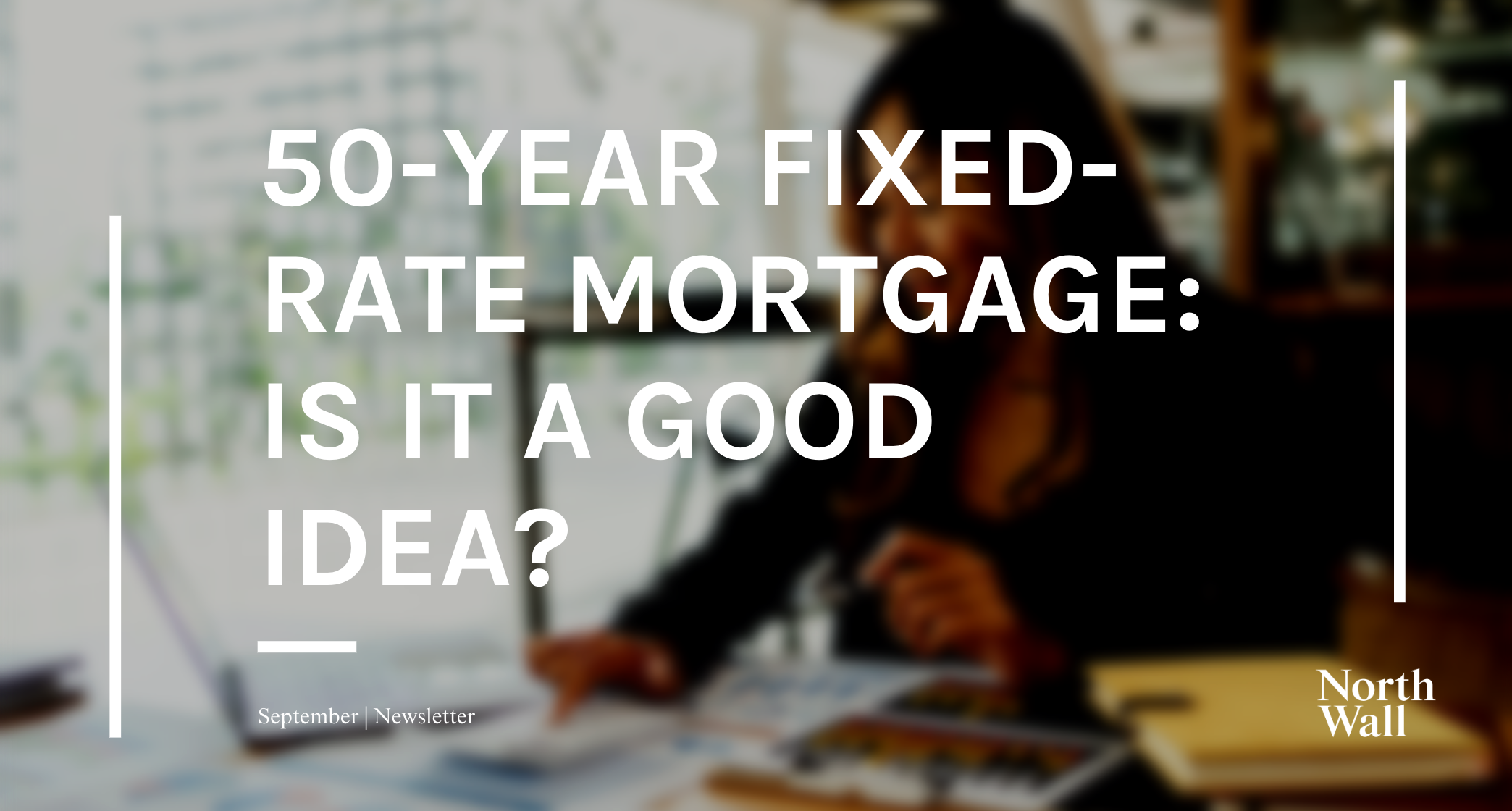Borrowers look to lock in deals for longer as mortgage rates rise
Homebuyers could soon be able to take out 50-year mortgages, with their monthly repayments remaining the same for the entire term.
A new mortgage lender called Perenna has been granted a licence by the Bank of England to offer fixed-rate deals lasting for up to half a century.
Here, we explain how a 50-year mortgage could work, alongside advice on how long to fix your rate for in a time of economic uncertainty.
Digital lender Perenna is set to launch a range of long-term fixed-rate mortgages, after being given approval by the regulator.
The UK-based lender will initially offer 30-year fixed-rate deals, before expanding to 40 and 50-year terms.
The deals would be fixed for life, meaning the borrower's interest rate would be locked in for the entire term of the loan, rather than the traditional two or five years.
Perenna's 30-year mortgage launches in the next six months. Potential customers can sign up for more information on its website.
Why are these new deals significant?
It may be some time before Perenna's 50-year mortgage becomes available, and it remains to be seen exactly how it'll compare in terms of interest rate and fees.
The lender's plans chime with the current trend of borrowers looking to fix their rate for longer, as mortgage rates rise due to soaring inflation.
Perenna may also be looking to get ahead of the game. The government announced in June it would conduct a widespread review of new ways to improve mortgage affordability for first-time buyers.
Ideas it mooted included longer-term mortgages and mortgage deals that could be passed down between generations.
Who will be able to take out a 50-year mortgage?
It remains to be seen who will be eligible for a 50-year mortgage, but we can hazard a guess it will only be available to the youngest borrowers.
Longer mortgage terms have become more commonplace in recent years, but there are no lenders currently offering terms quite this long.
Data from the Financial Conduct Authority shows that 41% of homebuyers take out terms longer than 25 years, a figure that rises to 66% of first-time buyers.
Currently, lots of lenders theoretically offer terms of up to 40 years, but most require the mortgage to be repaid by the age of 70 or 75. This means the borrower would need to be relatively young to be eligible for such a long term.
Long-term fixes and early repayment charges
When you take out a mortgage, one of the biggest questions is how long to fix your rate.
Most borrowers fix for two or five years and then switch to a new deal. A range of other options are available, including one, three, seven, 10 and 15-year fixed terms.
Longer-term fixes offer security against rising rates, but they tend to come with higher rates and early repayment charges (ERCs).
For example, if you take out a five-year fix and then decide to repay it early, you'll need to pay an ERC. These are charged on a sliding scale, so you might pay 5% of the loan in the first year, 4% in the second, and so on.
Perenna says its deals will have the same ERC terms as five-year fixes, with no charges payable if you switch after five years.
Will mortgage rates continue to rise?
With inflation now topping 10% and the prospect of further base rate rises, it's reasonable to think locking in a longer deal now is a sensible move.
The truth, however, is that simply we don't know what will happen to mortgage rates in the medium to longer term.
For example, you might pay around 3.2% for a two-year fix at 60% loan-to-value now, but just 10 months ago, you would have paid less than 1%.
So if you're fixing for five years now, you'll be sitting pretty if rates are up at 5% in two or three years, but be paying over the odds if they're back down to 2%.
With so much uncertainty in the economy, fixing for longer will provide the comfort of knowing your repayments won't rise. But it is important to weigh up your options and consider your own financial circumstances. If in doubt, seek advice from a mortgage broker.
The latest mortgage deals
Mortgage rates have been rising since the start of 2022, and lenders are chopping and changing their deals regularly in response to shifts in the base rate.
Source; Which


 4 minute read posted by
4 minute read posted by 
 by
by 

Share this with
Email
Facebook
Messenger
Twitter
Pinterest
LinkedIn
Copy this link